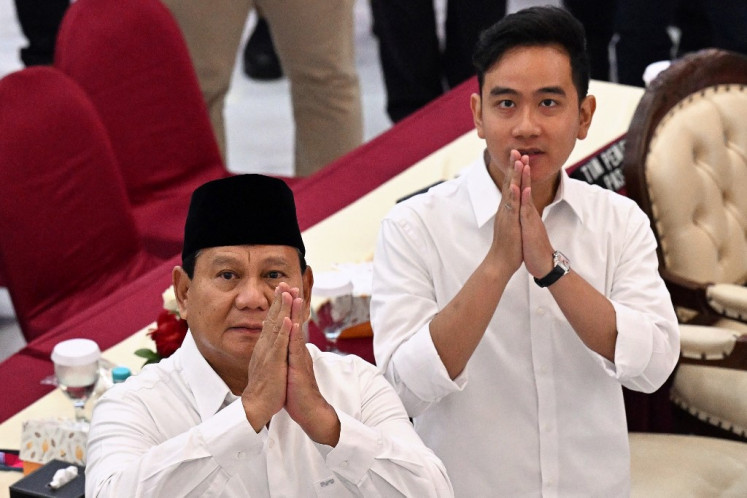Cattle supply secured, local parties pleased
The government has locked in a supply of beef cattle from East Nusa Tenggara with the signing of partnerships with 13 providers in the province
Change Size

T
he government has locked in a supply of beef cattle from East Nusa Tenggara with the signing of partnerships with 13 providers in the province.
The cattle providers will sell the livestock at market price directly to buyers in Jakarta.
Agriculture Minister Amran Sulaiman said local businessmen had committed to supplying 1,000 head of cattle each month, most of which would be transported to Jakarta by sea on KM Camara Nusantara 1.
'We already have a one-year program with local cattle businessmen,' Amran said on Tuesday. The minister said East Nusa Tenggara was able to supply more than 60,000 cattle each year to high beef-consuming areas such as Greater Jakarta. But, for the sake of maintaining the cattle population, the area should only send around 30-40 percent of that capacity to Jakarta, he said.
On Tuesday, the ministry welcomed the second arrival of 299 cattle from East Nusa Tenggara at Tanjung Priok port in North Jakarta. On the way to Jakarta, the livestock vessel KM Camara Nusantara 1 dropped 33 head of cattle at Tanjung Perak port in Surabaya, East Java, and 167 in Cirebon, West Java.
The livestock vessel was set to load cattle from East Nusa Tenggara at the end of December but the reportedly left empty after local farmers and businessmen refused to sell their cattle to the State Logistics Agency (Bulog) at Rp 35,000 (US$2.57) per kilogram live weight, much lower than the price paid by private shippers. To attract the cattle businessmen, the government then guaranteed that the cattle entrepreneurs could sell their stock directly to buyers in Jakarta, a policy which was widely accepted.
KM Camara Nusantara 1, operated by state shipping company PT Pelayaran Nasional Indonesia (Pelni), first arrived in East Nusa Tenggara on Dec. 12 as part of the government's maritime highway program.
The vessel, serving the Jakarta-East Nusa Tenggara route, was initially supposed to transport cattle bought by Bulog from farmers and businessmen in East Nusa Tenggara to Jakarta in order to help stabilize beef supplies and prices.
Aside from the partnership, Minister Amran also said the government planned to add seven more vessels, the construction of which is expected to finish this year.
'We made the request to the Transportation Ministry two months ago. Hopefully it can be gradually finished this year,' he said.
To further secure the supply, the ministry also aims to increase the country's cattle population, which has decreased by more than 3 million head of cattle since 2012.
Ministry data shows that the archipelagic country's cattle population stood at 15.98 million in 2012.
'We will import 50,000 breeding cattle this year to increase the population,' Amran said, adding that the ministry would also ban the shipping of female breeders for slaughter in Jakarta, and support an artificial-insemination program.
Director general of livestock Muladno said the ministry aimed to add around 900,000 cattle through the artificial-insemination program in the next two years.
The ministry also claimed that the program would eventually affect the soaring beef prices, with domestic beef expected to be sold at Rp 85,000 per kilogram to consumers. The beef price reportedly hit
Rp 140,000 per kilogram this month.
'But it will take time, not just one or two weeks. Price disparity is a problem that has lasted for decades,' Amran said.
Meanwhile, PD Dharma Jaya president director Marina Ratna Dwi Kusumajati said Jakarta needed 650 cattle per day and that the company's current shipment of 100 would not affect the price much.
'Around 97 percent of that daily demand is imported,' she said.
The ministry is aiming for 81 percent domestic beef production this year.









